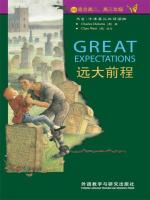Review
Review of "Great Expectations"
"Great Expectations" by Charles Dickens is a novel that has endured the test of time and remains a cornerstone of English literature. Set in 19th-century England, it tells the story of Pip, an orphan boy with humble beginnings who is suddenly given the chance of a "great expectation" of inheriting a fortune and rising in society.
The novel begins with Pip's encounter with an escaped convict, Magwitch, in a graveyard. This early event sets in motion a series of fateful meetings and relationships. Pip is later taken to the home of Miss Havisham, a wealthy but eccentric woman who was jilted on her wedding day and has since lived in a state of perpetual decay, both physically and emotionally. In her decaying mansion, Pip meets Estella, a beautiful and cold-hearted girl whom Miss Havisham has raised to break men's hearts as revenge for her own misfortune. Pip falls deeply in love with Estella, and this unrequited love becomes a central theme throughout the story.
Dickens' vivid and detailed descriptions of the settings are one of the highlights of the novel. The contrast between the dirty, impoverished marshes where Pip grows up and the opulent but morally corrupt world of the upper class in London is striking. For example, the description of Satis House, with its stopped clocks and faded wedding feast, creates an atmosphere of eerie gloom and decay that reflects Miss Havisham's broken spirit. In London, Pip enters a world of wealth and privilege but also discovers the shallowness and hypocrisy that often accompany it.
The characters in "Great Expectations" are complex and multi-dimensional. Pip is a relatable protagonist whose journey from innocence to experience is filled with self-discovery and moral growth. He is initially ashamed of his humble origins and desires to become a gentleman to win Estella's love. However, as the story progresses, he realizes the emptiness of a life based solely on social status and material wealth. Miss Havisham is a tragic figure, consumed by her past and her desire for revenge. Her character is both pitiful and somewhat terrifying, as her actions have a profound and often cruel impact on the lives of those around her. Estella, too, is a complex character. She is a product of Miss Havisham's upbringing, but beneath her cold exterior, there are hints of a deeper humanity and a potential for redemption.
Themes of social class, ambition, guilt, and redemption are intricately woven throughout the narrative. Pip's pursuit of a higher social class leads him to question his own values and the true meaning of happiness. His guilt over abandoning his true friends and family in his quest for wealth and status is a constant source of inner turmoil. The novel ultimately explores the idea that true greatness and happiness come not from external circumstances but from within, from having a kind heart, strong moral character, and genuine relationships.
Dickens' writing style is both engaging and accessible. His use of vivid imagery, colorful dialogue, and memorable characters draws the reader into the story and makes it impossible to put the book down. The plot is filled with twists and turns, keeping the reader in suspense until the very end.
In conclusion, "Great Expectations" is a timeless masterpiece that offers a profound exploration of human nature, society, and the pursuit of the good life. It is a story of love, loss, and self-discovery that continues to resonate with readers today. Dickens' ability to create a rich and detailed world populated by complex characters and to convey important moral and social messages makes this novel a must-read for anyone interested in classic literature. It serves as a reminder that our expectations and desires should be tempered with wisdom and kindness, and that the journey of self-discovery and personal growth is often more valuable than the attainment of worldly success.



 京公网安备 11010802032529号
京公网安备 11010802032529号